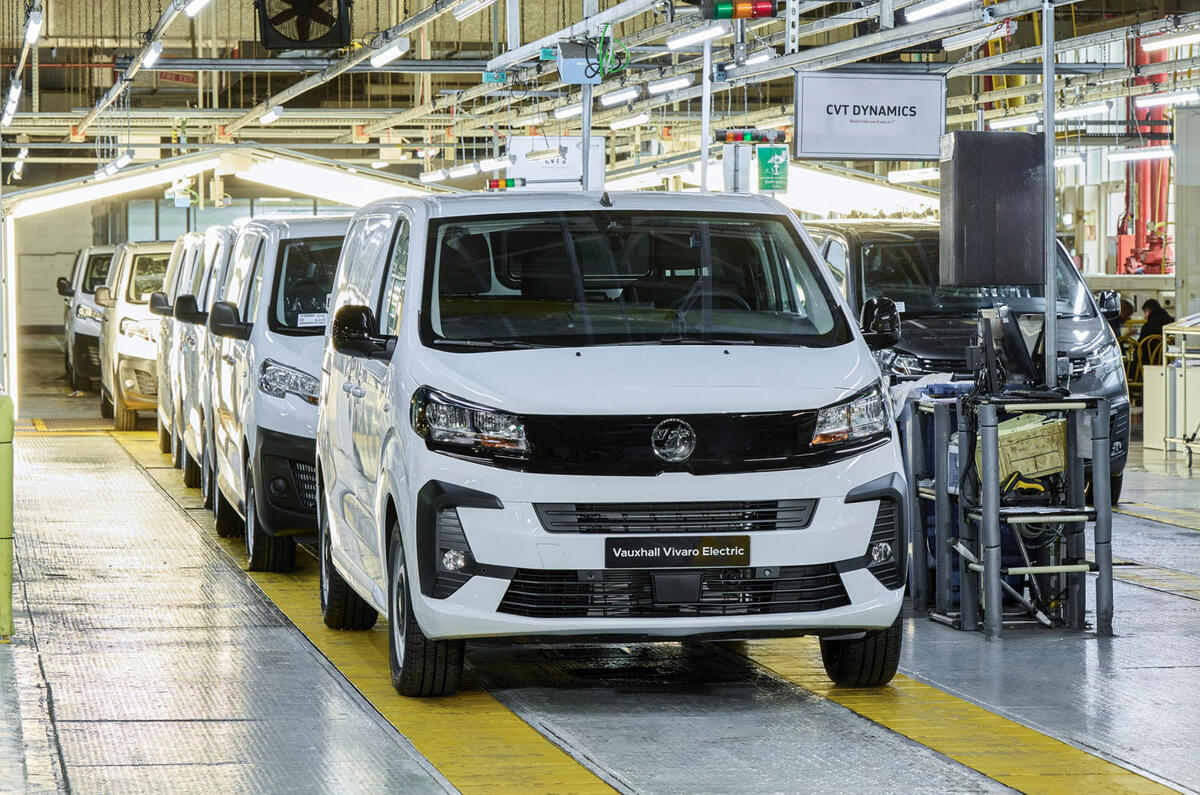Vauxhall owner Stellantis has announced plans to close its historic commercial vehicle factory in Luton, just months after bosses threatened closures as part of a battle with the UK government over its zero-emission vehicle (ZEV) mandate.
The announcement, which puts 1100 jobs at risk, is part of a move to “consolidate” Stellantis's UK manufacturing footprint to one site at Ellesmere Port, which last year began making EVs following a £100 million upgrade.
Stellantis said this decision is one that will “potentially contribute to greater production efficiency” – something it said would also allow it to meet increasingly stringent ZEV mandate targets.
The multinational giant said that if proposals announced today are given the go-ahead, all of Luton’s production operations would be moved to Ellesmere Port to create “an all-electric, sustainable vehicle hub”.
More than £50m would then be spent again upgrading the Merseyside site to take on the extra work.
Just a few hundred jobs would be moved north, Stellantis said.
A consultation has been announced for affected workers, with those unable to make the move being offered retraining or potentially offered jobs at neighbouring businesses.
In reponse, a government spokesperson said: “While it’s encouraging to see Stellantis investing in the future of its Ellesmere Port plant, we know this will be a concerning time for the families of employees at Luton who may be affected.
“We have a longstanding partnership with Stellantis and we will continue to work closely with them, as well as trade unions and local partners on the next steps of their proposals."
Stellantis has long argued against the ZEV mandate, and this August, CEO Carlos Tavares threatened plant closures as part of a review in its UK operations.
Tavares said the ZEV mandate was “hurting significantly our business model”, as car makers were being forced to sell more EVs while no incentives were offered to buyers and the industry grappled with a downturn in EV interest.
Under the mandate, car makers must achieve an EV sales mix of 22% in 2024, rising incrementally each year to 80% by 2030, or face heavy fines for every non-electric car sold over the threshold.
Tavares’s words came a month after former Stellantis UK boss Maria Grazia Davino warned that the company could stop building vehicles in the UK if the government’s electrification initiatives created a “hostile” trading environment.
Before Stellantis’s announcement earlier today, reports suggested the government was about to announce a consultation on the ZEV mandate following talks between ministers and car makers last week. At the time of writing, nothing has officially been announced.









Join the debate
Add your comment
Makes perfect sense. But I can't resist bringing back that Brexit word.
If we vote to leave the EU, then it'll be a nail in the coffin for British motor manufacturing. That's what the remain side told you.
At it's height in the 60's, Luton employed 36k-37k workers. In that time, the UK joined the EU and left the EU, yet despite this, job numbers at Luton have always remained in decline. If the reports are correct and Stellantis aren't telling porkies, production at Luton is being moved to... not the EU, but to Ellesmere Port.
So I'm just wondering if any of those remainers care to explain why Stellantis is not moving production to the EU as you said they would? If they were going to do it, surely this would be the ideal opportunity? The irony is the only time production at Luton was moved to the EU was when the UK was still a member state!
Talk about scaremongering. The suggestion leaving the EU would make any difference to manufacturers plans was always BS.
Their 'Consolidation' euphemism makes me want to read Das Kapital once again.
Chinese manufacturers appear to be buying up established factories, eg Nissan/Ebro in Spain which closed 3 years ago now being occupied by Chery to avoid import tariffs. The government should facilitate mothballing of the Luton site - just as could have been done with Honda Swindon and the Longbridge CAB's if the previous government had any pro-manufacturing policy.